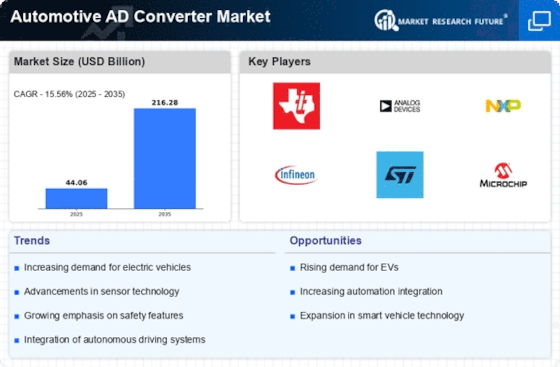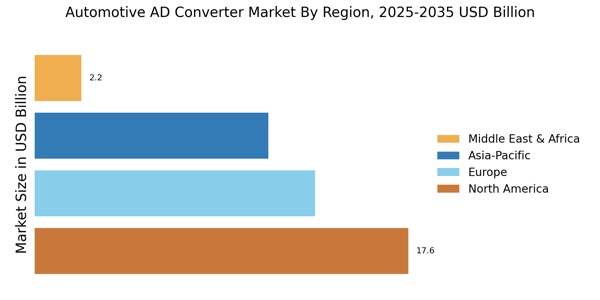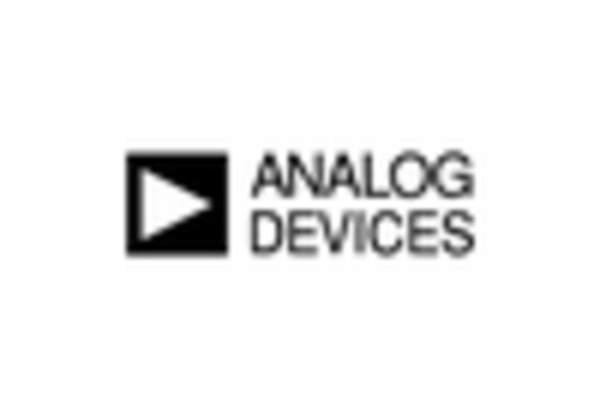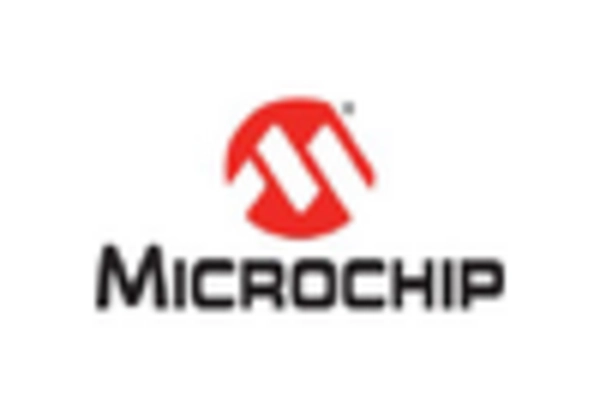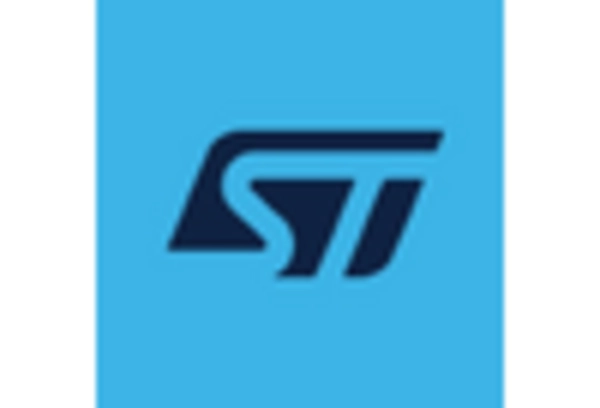Rising Demand for Connected Vehicles
The rising demand for connected vehicles is a significant driver for the Automotive AD Converter Market. As vehicles become more interconnected, the need for reliable data processing and communication systems intensifies. AD converters are essential for converting analog signals from various sensors into digital data that can be transmitted to onboard systems and external networks. The market for connected vehicles is projected to expand rapidly, with estimates indicating that the number of connected cars on the road could reach over 500 million by 2030. This surge in connectivity necessitates advanced AD converters capable of handling large volumes of data with high accuracy and speed. Consequently, the Automotive AD Converter Market is poised for growth as manufacturers seek to develop innovative solutions that meet the demands of an increasingly connected automotive landscape.
Regulatory Compliance and Safety Standards
Regulatory compliance and safety standards are increasingly influencing the Automotive AD Converter Market. Governments and regulatory bodies worldwide are implementing stringent safety regulations that require advanced electronic systems in vehicles. These regulations often mandate the use of high-precision AD converters to ensure accurate data processing from safety-critical systems. For instance, the implementation of the Euro NCAP safety rating system has led to a surge in demand for vehicles equipped with advanced safety features, which in turn drives the need for reliable AD converters. The market is witnessing a trend where manufacturers are investing in research and development to create AD converters that not only meet but exceed these regulatory requirements. This focus on compliance is likely to foster innovation and enhance the overall growth of the Automotive AD Converter Market.
Shift Towards Electric and Hybrid Vehicles
The ongoing shift towards electric and hybrid vehicles serves as a crucial driver for the Automotive AD Converter Market. As automakers pivot to electrification, the complexity of vehicle systems increases, necessitating advanced electronic components, including AD converters. These converters play a vital role in managing battery systems, electric motors, and regenerative braking systems, which are fundamental to electric and hybrid vehicle performance. Market data indicates that the electric vehicle segment is expected to account for a significant share of the automotive market, with projections estimating that electric vehicles will represent over 30% of total vehicle sales by 2030. This transition not only enhances the demand for AD converters but also encourages innovation in their design and functionality, thereby propelling the Automotive AD Converter Market forward.
Integration of Advanced Driver-Assistance Systems (ADAS)
The integration of Advanced Driver-Assistance Systems (ADAS) is a pivotal driver for the Automotive AD Converter Market. As vehicles increasingly incorporate sophisticated technologies aimed at enhancing safety and convenience, the demand for high-performance AD converters rises. These converters are essential for processing data from various sensors, including cameras and radar systems, which are integral to ADAS functionalities. The market for ADAS is projected to grow significantly, with estimates suggesting a compound annual growth rate of over 20% in the coming years. This growth directly correlates with the need for advanced AD converters that can handle the increased data throughput and ensure real-time processing. Consequently, the Automotive AD Converter Market is likely to experience substantial growth as manufacturers strive to meet the evolving demands of ADAS integration.
Technological Advancements in Semiconductor Manufacturing
Technological advancements in semiconductor manufacturing are significantly impacting the Automotive AD Converter Market. Innovations in fabrication techniques and materials are enabling the production of more efficient and compact AD converters, which are essential for modern automotive applications. The trend towards smaller, more integrated circuits allows for enhanced performance and reduced power consumption, which is particularly important in electric and hybrid vehicles. Market analysis suggests that the semiconductor industry is expected to grow at a robust pace, with automotive applications being a key driver of this growth. As manufacturers adopt cutting-edge technologies, the Automotive AD Converter Market is likely to benefit from improved product offerings that cater to the increasing demands for efficiency and performance in automotive electronics.


